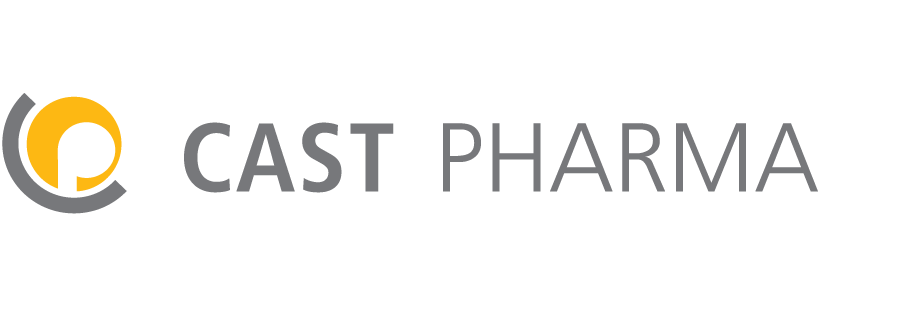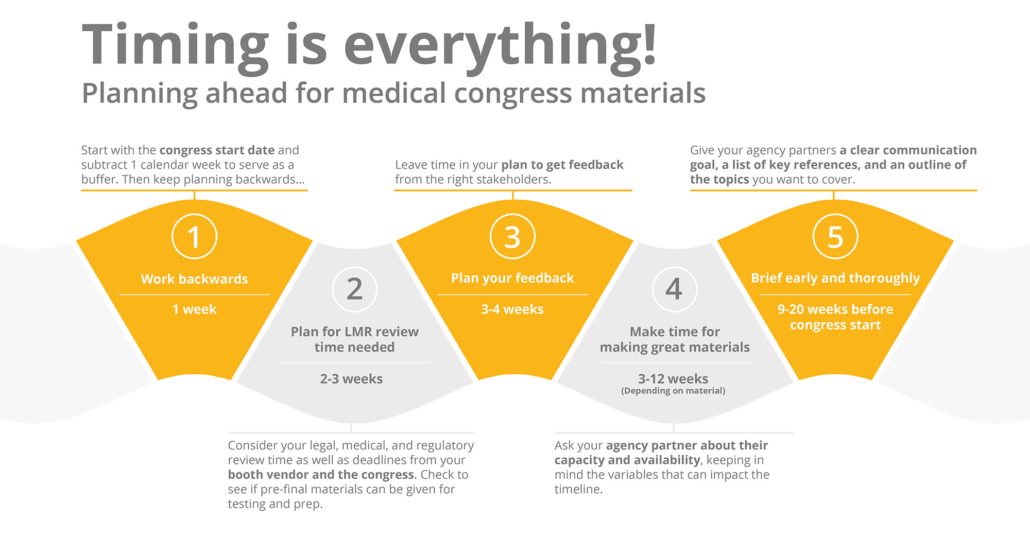Planning ahead for outstanding medical congress materials
Congresses and conferences are a crucial platform for medical affairs to share their latest research and engage with HCPs. To make the most of these opportunities, it’s essential to plan for creating congress materials that will effectively communicate your messages and leave a lasting impression on your audience. In this article, we will give you a roadmap for planning your materials for conferences, whether infographics, medical animation, or presentations.
Preparing for medical congresses can be a stressful and time-consuming process. And it’s easy to feel rushed and pressured to get materials ready, given deadlines from booth vendors and the organizers of the congress. Meanwhile, presenters and team members working the booth need time to prepare and rehearse, and reviewers may become frustrated if they receive materials last minute that require a thorough review.
By planning ahead and being proactive, you can avoid the stress and last-minute rush that often accompany congress preparations. The key is to create a realistic and flexible plan that allows you to get the input you need from key stakeholders. Here are some steps you can take to make the process as seamless as possible:
1. Work backwards
The best way to plan for congress materials is to start with the end in mind and work backwards. Start with the congress start date and subtract 1 calendar week. This will give you a buffer so you have time to make any final tweaks and preparations.
2. Plan for review time needed
Consider the deadlines of your booth vendor and the congress organization. Then check with the to see if pre-final materials can be given for testing and replaced by approved materials. This allows LMR review to be done in parallel to final booth or session preparations. Be sure to allocate sufficient time in your plan for LMR review. Depending on your company, you may need 5-10 business days for the initial review and 3-5 for a revise and resubmit. Final approval may take less time.
3. Plan for feedback
Ensure you’ve left time in your plan to get feedback from the right stakeholders. This could include medical directors, your MSLs, even external HCPs or KOLs—anyone with a stake in the success of your congress materials. Allowing time for feedback ensures the final product is a true representation of the collective goals and perspectives of your organization. Be proactive in reaching out to stakeholders. Clearly communicate your timeline and expectations, giving them the context they need to give relevant feedback. All too often, medical staff will get an email with an attachment and the vague message “Could you take a look at this and tell me what you think?” Most importantly, make sure there is time to make revisions based on their feedback.
4. Make time for making great materials
Consider the time needed for material development. Ask your agency partner about their capacity and availability, and keep in mind that the depth of content, complexity of visual style, strength of briefing, and length of material can all impact the timeline. For example, video content may take 10-12 weeks, slide decks less than 50 slides may take 4-8 weeks, single illustrations or infographics may take 3-4 weeks or less.
5. Brief early and thoroughly
To save time and help your agency partners hit the ground running, be sure to provide them with a clear communication goal, a list of key references, and an outline of the topics you want to cover. A rough guide is to send a brief for materials to your agency partners 3-6 months prior to the congress, depending on the complexity of the project.
Planning for success at the next medical conference
With a clear and well-thought-out plan in place, you can ensure that your congress materials are not only ready on time but also effective in communicating your messages and engaging HCPs. Your presentations will be well-rehearsed, your slide decks will be visually appealing and scientifically sound, and your medical affairs team will be able to engage in meaningful conversations with HCPs. You will leave the congress feeling confident and proud of the impact you made.


